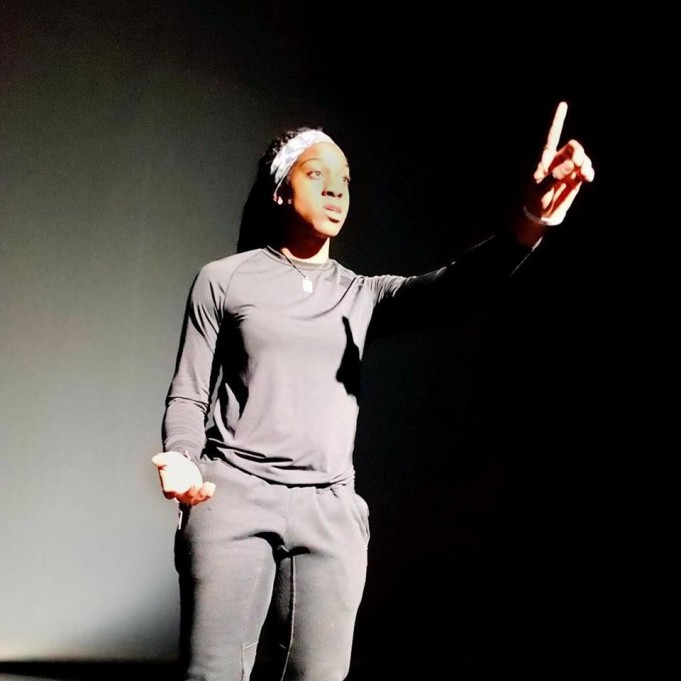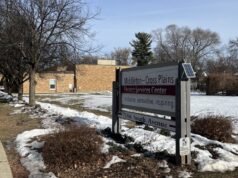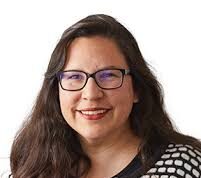Last night, Wheelhouse Studio’s artist-in-residence Tiffany Ike performed her one-woman show titled D.R.O.P.S. (Discrimination, Racism, Oppression, Prejudice, Stereotyping) at the Play Circle Theater of the Memorial Union. The Texas native used a compilation of different art forms including singing, dance, visual art, and spoken word to respond to and take a closer look at race relations on the UW campus, as well as the overall powerful impact of words. Ike has been planning the piece since last semester and originally premiered the work last month. As a sophomore and an Office of Multicultural Arts Initiatives (OMAI) First Wave Scholar, Ike is still acclimating herself to an environment where there is an awkward and uninterested attempt towards cultural competency and is using her art to promote conversation on the issue.
Madison365 had a chance to speak one-on-one with the artist. In bold italics throughout the story are quotes from Ike from the performance last night.
“These five words are only a starting point to open up more conversation to what it means to be ‘you’ in America.”
Madison365: What inspired this?
Tiffany Ike: I was in Texas at the time. I had a conversation with someone and they were throwing the word ‘racist’ out. It kind of bothered me. I feel like the way people talk is very emotionally charged and therefore they lose the point. They don’t understand how they could be considered racist, so they stop listening because the word racist carries so much emotion; as soon as you call someone racist they are up in arms. I thought if people were to use words that were more specific, then there could be a way of stopping someone in their tracks. D.R.O.P.S. slowly evolved from slurs to how we use general words to each other.
“If the weight of the word was on your shoulders would you let it drop?”

Madison365: What did you learn?
Tiffany Ike: Part of the project was written slurs posted on different parts of the campus. I was afraid of a lot of backlash, and that I stepped too far out of my boundaries. But every time there was someone offended, we still ended up having a beautiful, necessary conversation. I learned a lot from just talking to people. A lot of the stories weren’t surprising, but it was surprising how everyone was so quick to have a story. The anonymity of people being able to respond to the canvases placed around campus was also surprising because people are very hateful. The way that UW presents itself is as a happy-go-lucky campus and people were saying some very interesting things, things that were just angry.
“As we look at the state of our society today, different cultures are communicating together in ways that are creating storms that result in more destruction than growth.”
Madison365: What can the campus learn from D.R.O.P.S.?
Tiffany Ike: I think honesty. It starts with a camaraderie with people of color; we all have these stories. And even non-people of color, we all talk bad to each other. So I think what can be learned is that we all seem to have a story, doesn’t matter what color or race you are. We all have a story that feels like we were being discriminated against or talked about based on our race. So let’s talk about it, everybody. I think we should be able to open up conversation on the fact that we all are throwing out a lot of hate which coincides really well with this hashtag #therealUW*. I think it’s very important to share stories and acknowledge that this is not an anomaly on this campus.
*#TherealUW is a current trending topic on social media for students of color at UW-Madison to share their stories of racial bias and discrimination on campus. The hashtag arose after three bias incidents taking place over the past weekend.
Madison365: What role do you think your art plays on campus, especially considering recent bias incidents on campus?
Tiffany Ike: I think art is important because it is a form of entertainment but at the same time, I am allowed to teach something, almost by force. So they are here to be entertained, but they are sitting in something that is so important; something that needs to be shared. That’s the role art plays. It tries to bring people out, but still has the power to change how people think or just open their eyes.

Madison365: What have you added since the project’s debut?
Tiffany Ike: There are whole new pieces involved that encompass my own experiences as a black person and how it expands from people just saying small [microaggressions] to actual things happening. I’ve also expanded a few metaphors, and am really stressing the theme of a cycle. The title is D.R.O.P.S. so you have water already involved and this cycle of things that keep coming back around. We tend to have conversations about things being terrible, but then it kind of goes off the radar until it comes back again, meaning it was never was fixed in the first place.
Madison365: What’s next?
Tiffany Ike: I’ve been getting a lot of opportunities to share the D.R.O.P.S. piece. Honestly, I didn’t think it was going to pick up the way it did, but it makes sense considering the racial climate not only on this campus but in the country. Hopefully, there will be more performances.
“I’m really just hoping to use art to inspire and/or change something.”










